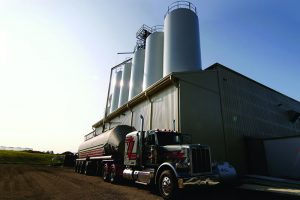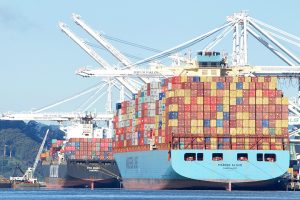 The world’s largest retailer has announced a handful of new plastics recycling and waste reduction commitments.
The world’s largest retailer has announced a handful of new plastics recycling and waste reduction commitments.

 Colin Staub was a reporter and associate editor at Resource Recycling until August 2025.
Colin Staub was a reporter and associate editor at Resource Recycling until August 2025. The world’s largest retailer has announced a handful of new plastics recycling and waste reduction commitments.
The world’s largest retailer has announced a handful of new plastics recycling and waste reduction commitments.
 This story has been corrected.
This story has been corrected.
Some recycling stakeholders have argued for more source separation to bolster material quality. Now, a lawmaker in the country’s largest state is joining the call.
 Two government initiatives looking to energize the lithium-ion battery recycling sector have officially launched, offering prize money to recycling entrepreneurs and a dedicated laboratory to house research projects.
Two government initiatives looking to energize the lithium-ion battery recycling sector have officially launched, offering prize money to recycling entrepreneurs and a dedicated laboratory to house research projects.

China has decreased purchases of old corrugated containers, which has caused domestic and export prices for the key fiber grade to fall.
Continue Reading

The Washington state capitol building in Olympia.
Lawmakers in Indiana and Washington are evaluating proposals that would shift end-of-life packaging management responsibilities from municipalities to product producers.

Recycling stakeholders are pushing back against a container deposit expansion proposal in New York state, stating it will injure recycling programs when they’re already struggling with a down market.

The EFS-Plastics facility in Listowel, Ontario.
Many municipal programs and facilities have recently tried to cut back on mixed plastics, citing tight markets. But reclaimer EFS-Plastics has plans to open a third North American operation and is on the hunt for more mixed bales to fuel its growth.
 Waste and recycling industry safety has received elevated attention in recent years as injuries and fatalities have risen. Despite collaboration and the heightened focus, the numbers show little improvement.
Waste and recycling industry safety has received elevated attention in recent years as injuries and fatalities have risen. Despite collaboration and the heightened focus, the numbers show little improvement.

U.S. trade figures for November 2018 were released last week, showing that more recovered fiber and significantly less plastic was shipped out of the country.

Jim Fish, CEO of Waste Management, speaks at the company’s annual sustainability forum.
Waste Management invested millions of dollars into recycling in 2018, and the year to come will bring the company’s “largest residential recycling investment” to date, company leaders said.
